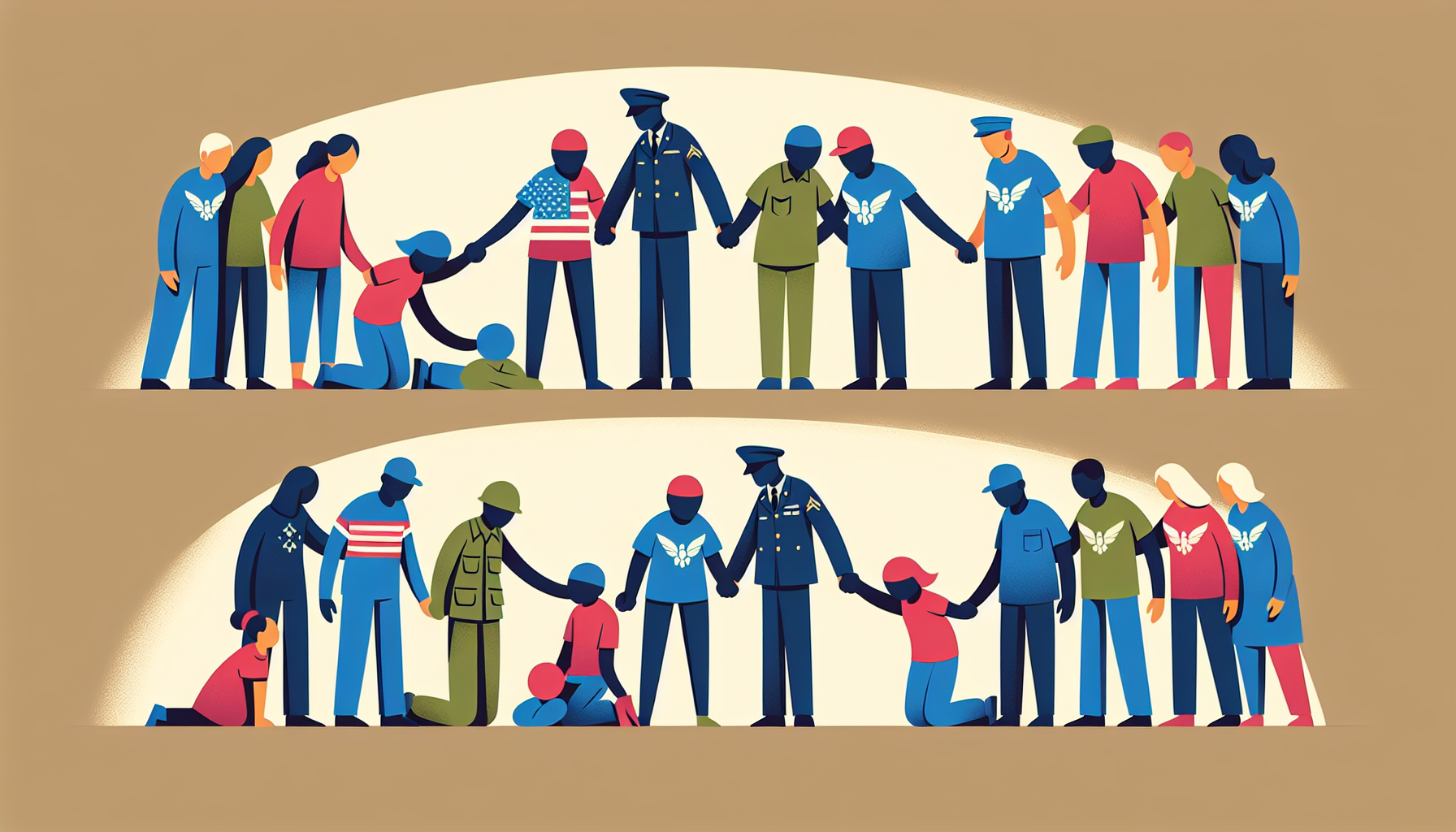Definition
Dependency and Support Claims refer to the financial assistance available to eligible dependents and family members of U.S. military service members or veterans. These claims aim to provide financial support for the education, healthcare, and overall well-being of the dependents. They include programs such as Dependent and Survivor Benefits, Educational and Vocational Counseling, and Spouse Education Assistance, among others.
Key Takeaways
- Dependency and Support Claims refer to benefits provided to eligible dependents of veterans, such as spouses, children, and sometimes parents, in recognition of the veteran’s service.
- These benefits can include financial compensation, education, healthcare, and various other support programs designed to help dependents achieve stability and self-sufficiency.
- To access Dependency and Support Claims, dependents must meet specific eligibility criteria, and the veteran’s service must be considered honorable or under conditions other than dishonorable.
Importance
The VA benefits term “Dependency and Support Claims” is important because it refers to financial assistance and benefits provided by the Department of Veterans Affairs (VA) to the eligible dependents and survivors of military service members and veterans.
This support can significantly help improve the quality of life and well-being for families who have experienced the loss or injury of their loved ones, offering financial stability and access to vital resources such as healthcare, education, and compensation.
Recognizing and understanding the significance of Dependency and Support Claims directly contributes to honoring the service and sacrifices made by military personnel and their families, while also ensuring that they receive the crucial assistance they deserve as they navigate life after service.
Explanation
The primary purpose of Dependency and Support Claims is to provide essential financial assistance and support to the dependents of veterans who have suffered from service-related disabilities, or in unfortunate cases where the veteran has passed away. These claims act as a supplement to the veteran benefits program, ensuring that the family members are not left in dire financial straits due to the sacrifices made by servicemen and women.
Dependents typically include spouses, unmarried children, and sometimes parents who rely on the veteran for financial assistance. By having this support in place, not only does it aid the veteran in maintaining a sense of normalcy in their home life, but it also offers peace of mind for both the veteran and their loved ones.
Dependency and Support Claims are used for various purposes beyond just providing financial assistance. These claims actively support the education and vocational training of the dependents, enabling them to pursue their own career paths.
Furthermore, this benefit also encompasses healthcare services, ensuring the health and wellbeing of veterans’ family members with access to necessary medical treatments and support during difficult times. These comprehensive benefits aim to uphold the dignity and honor of veterans and their families, acknowledging the sacrifices made in the line of duty and reinforcing the government’s commitment to supporting these courageous individuals and their dependents.
Examples of Dependency and Support Claims
Survivors Pension: A surviving spouse of a deceased veteran who served during a period of war may be eligible for Survivors Pension (also known as “Death Pension”). This VA benefit provides a monthly payment to the spouse based on financial need, taking into account their countable income and the applicable maximum pension rate established by law. The purpose of this Dependency and Support claim is to help qualified surviving spouses have an adequate income after losing their main provider due to a veteran’s death.
Dependency and Indemnity Compensation (DIC): DIC is a tax-free monthly payment made to eligible survivors of servicemembers who died in the line of duty or veterans whose death resulted from a service-related illness or injury. This financial support helps to partially replace the lost income resulting from the death of their military spouse or parent. The eligibility criteria are different from the Survivors Pension and may depend on various factors, such as the veteran’s dates of service, the cause and timing of death, and the claimant’s relationship with the deceased veteran.
Education and Training Benefits: Survivors and dependents of disabled or deceased veterans who either suffer from a service-connected disability or died while on active duty may be entitled to education and training benefits. These benefits can be obtained through the Dependents’ Educational Assistance (DEA) program, the Fry Scholarship, or transferred Post-9/11 GI Bill benefits. These educational benefits can be used to attend college, technical schools, or other approved institutions, supporting family members in their pursuit of higher education and employment opportunities.
FAQ: Dependency and Support Claims
What are dependency and support claims?
Dependency and support claims are benefits provided to the eligible family members of a veteran, such as their spouse, children, or parents. These benefits include monthly compensation for financial support, healthcare, educational assistance, and more.
Who is eligible for dependency and support claims?
Eligible beneficiaries include the surviving spouse, dependent children (below the age of 18 or up to 23 if attending school), and in some cases, the veteran’s parents. Eligibility criteria may vary based on the veteran’s disability status, death, or other factors.
How do I apply for dependency and support claims?
Applicants can submit a claim for dependency and support benefits online through the eBenefits portal, by mail using VA Form 21-534EZ, or in person at a VA regional office. Supporting documentation, such as marriage, birth, or adoption certificates, may be required during the application process.
How long does it take to process a dependency and support claim?
Processing times may vary depending on the complexity of the claim and the claim’s priority level. Generally, the processing time for dependency claims can range from a few weeks to a few months. Applicants can check the status of their claims online using the eBenefits portal or by contacting the VA office where they submitted their application.
Can I appeal a decision on my dependency and support claim?
Yes, if you disagree with the decision made on your dependency and support claim, you can file an appeal with the Veterans Benefits Administration. You have one year from the date of the decision letter to submit your appeal. It’s recommended to consult a Veterans Service Organization (VSO) or a VA-accredited representative for assistance in the appeals process.
Related VA Benefit Terms
- Survivors Pension
- Dependents’ Educational Assistance (DEA)
- Dependency and Indemnity Compensation (DIC)
- Family Servicemembers’ Group Life Insurance (FSGLI)
- Post-9/11 GI Bill Transferability
Sources for More Information
- U.S. Department of Veterans Affairs (VA)
- VA Compensation
- Military.com
- Veterans of Foreign Wars (VFW)
 Benefits.com Advisors
Benefits.com Advisors
With expertise spanning local, state, and federal benefit programs, our team is dedicated to guiding individuals towards the perfect program tailored to their unique circumstances.
Rise to the top with Peak Benefits!
Join our Peak Benefits Newsletter for the latest news, resources, and offers on all things government benefits.





















